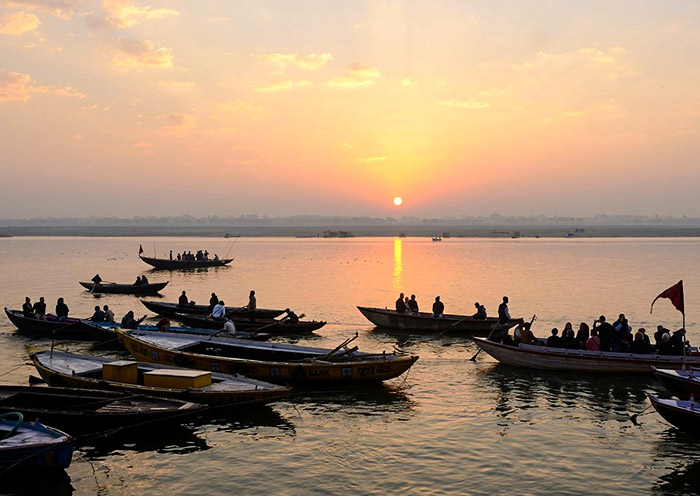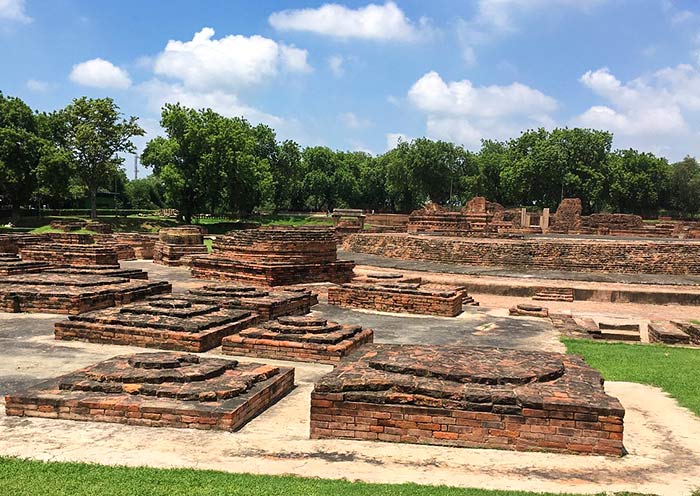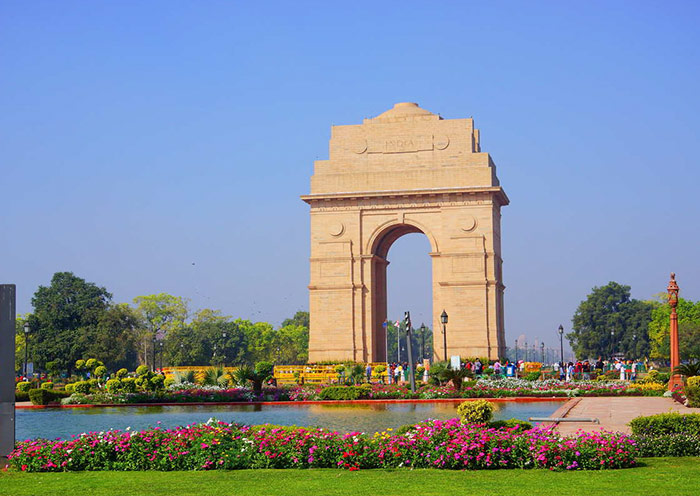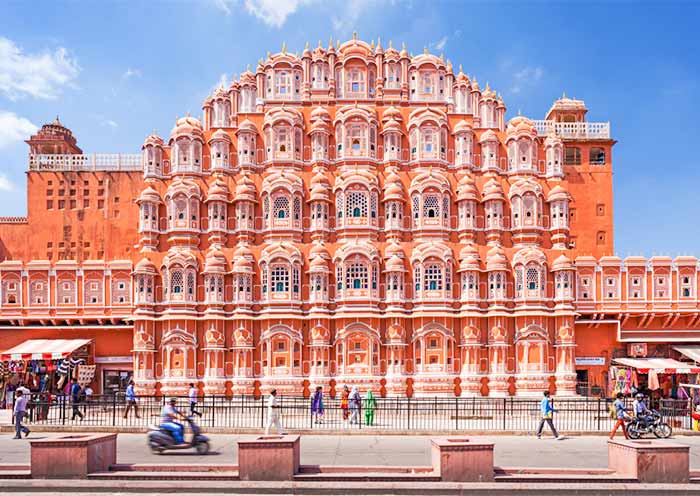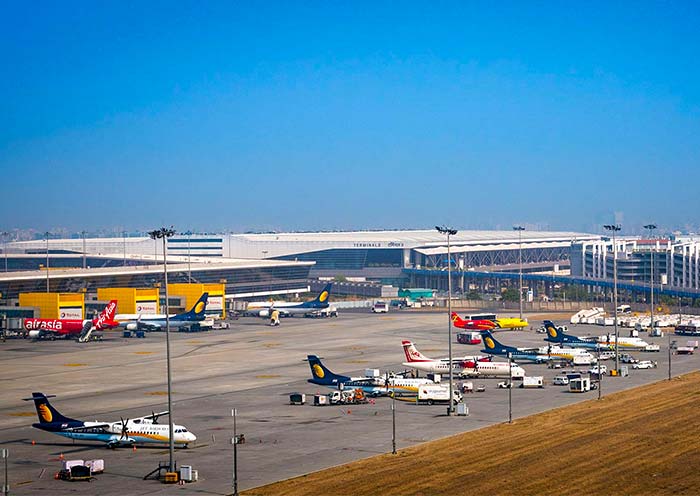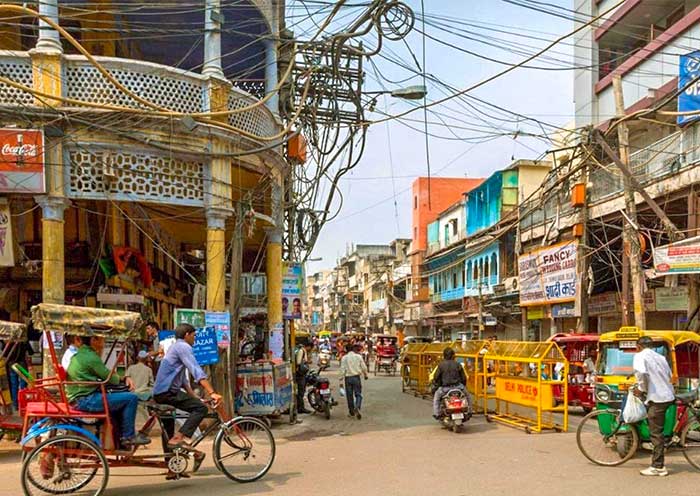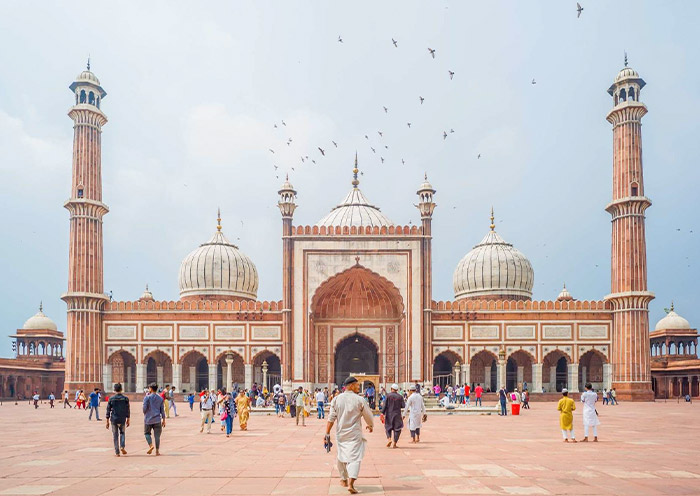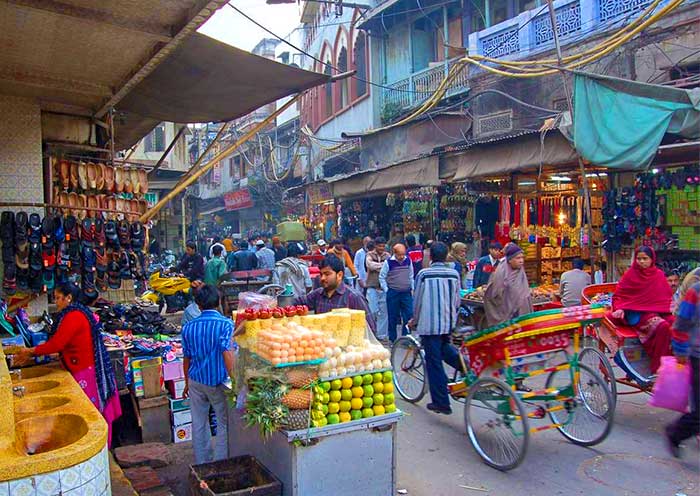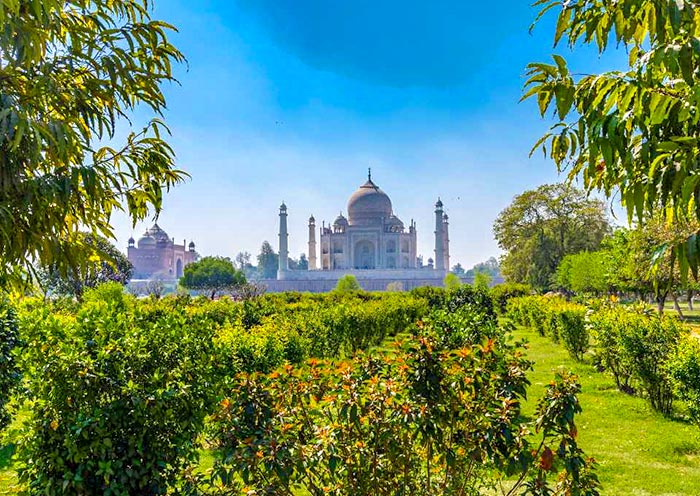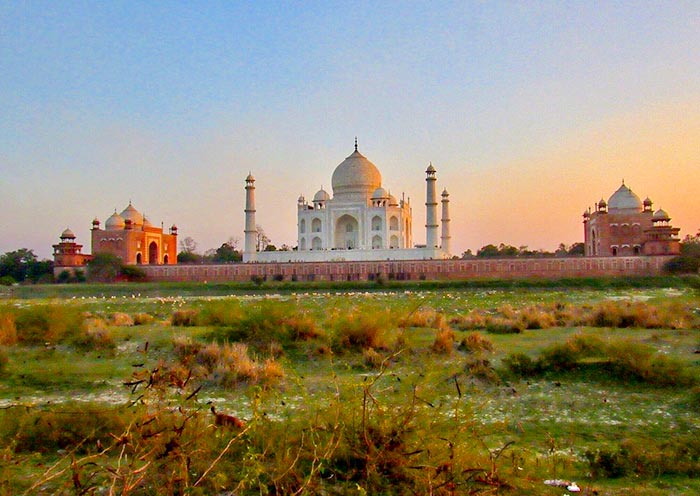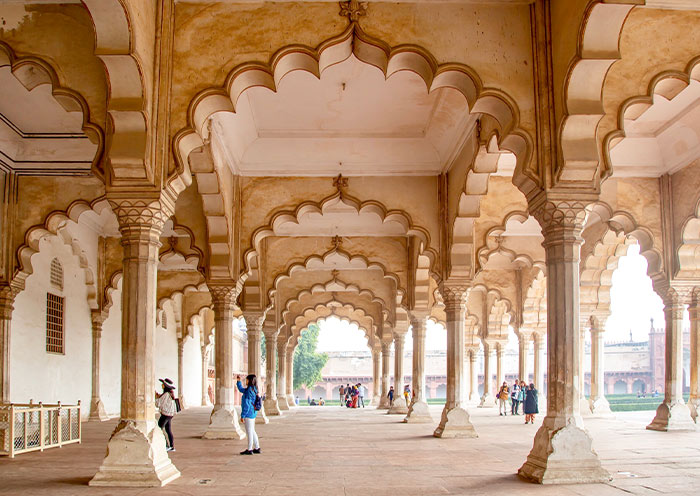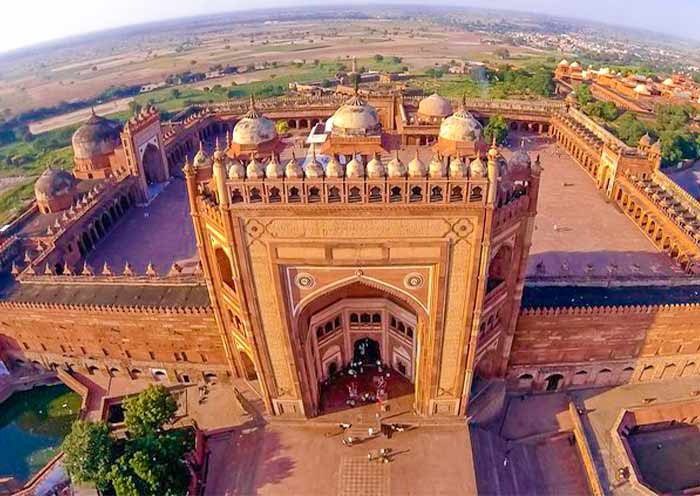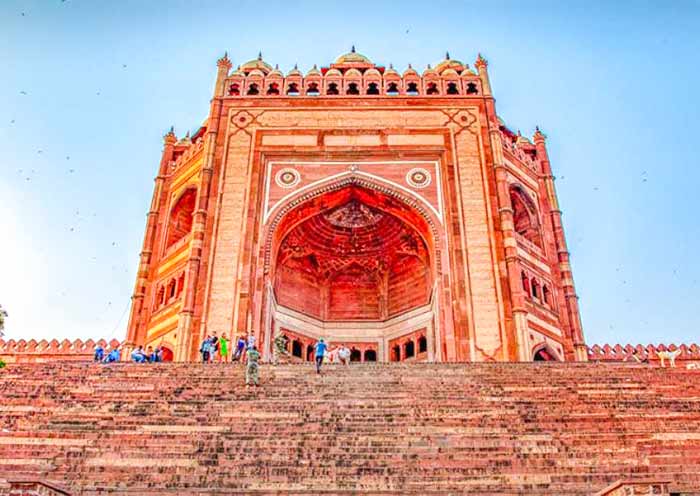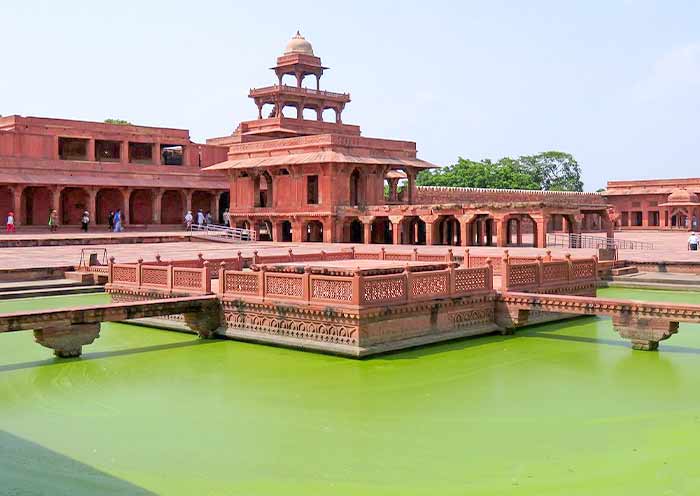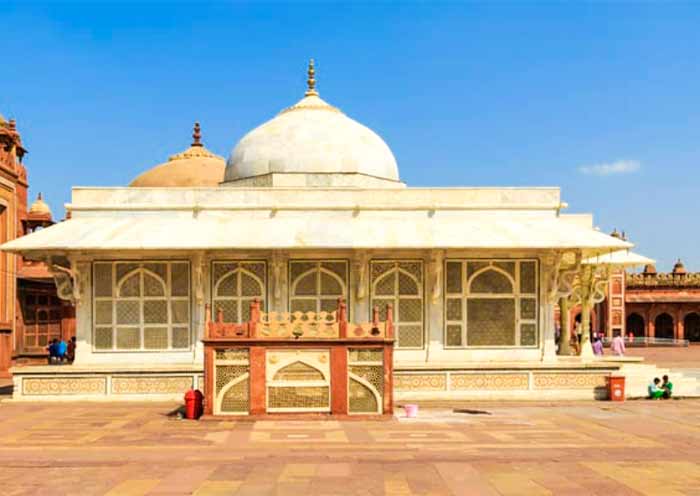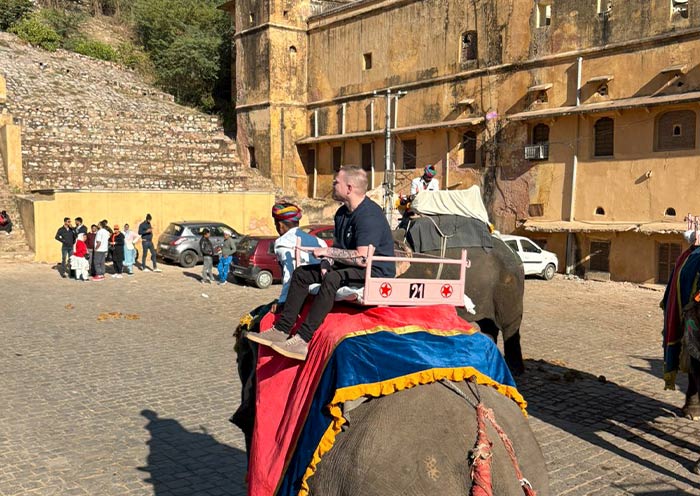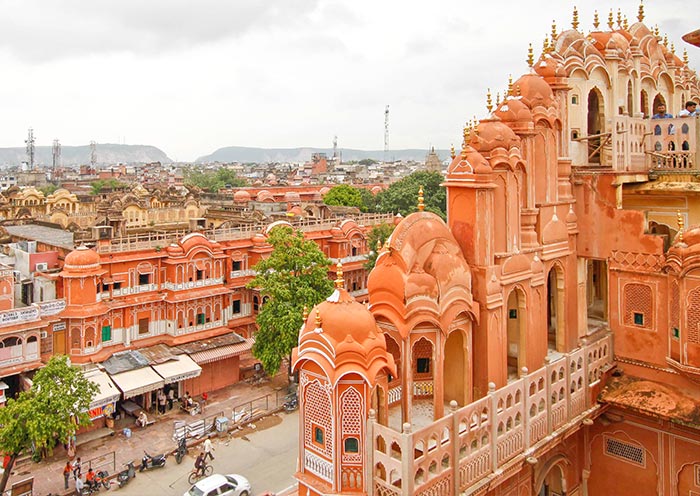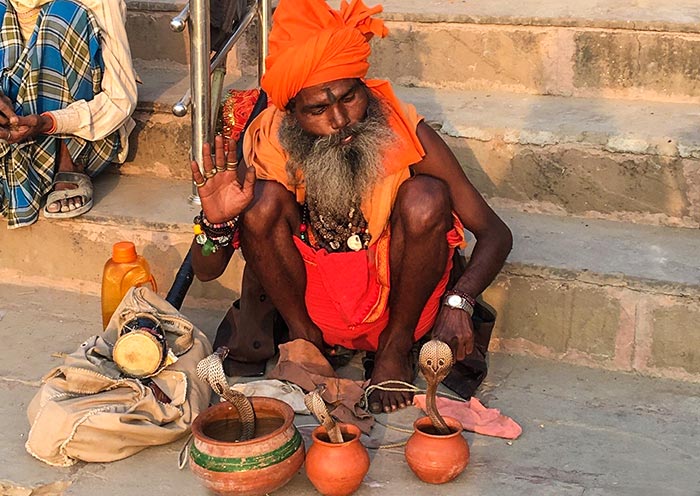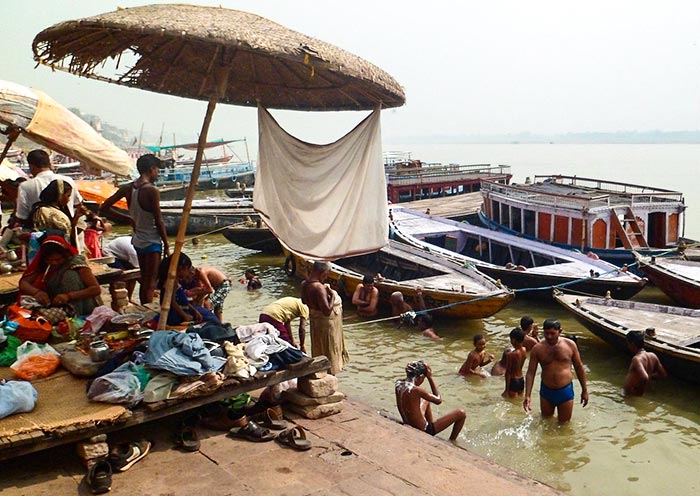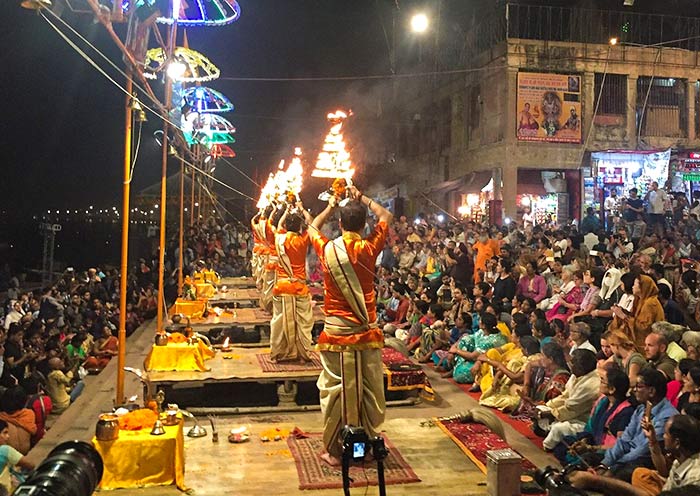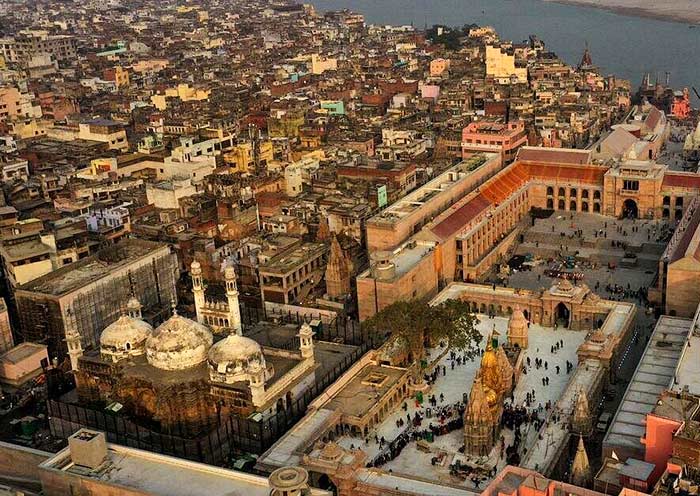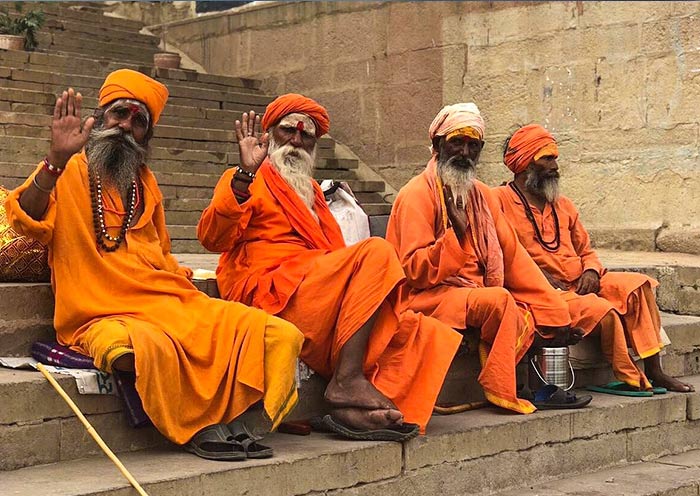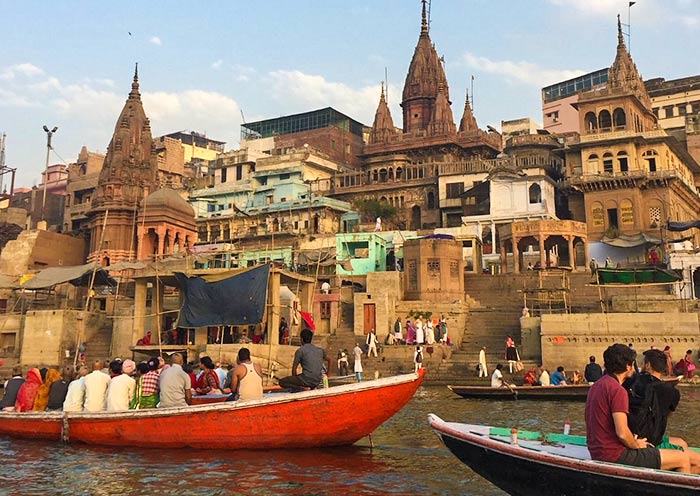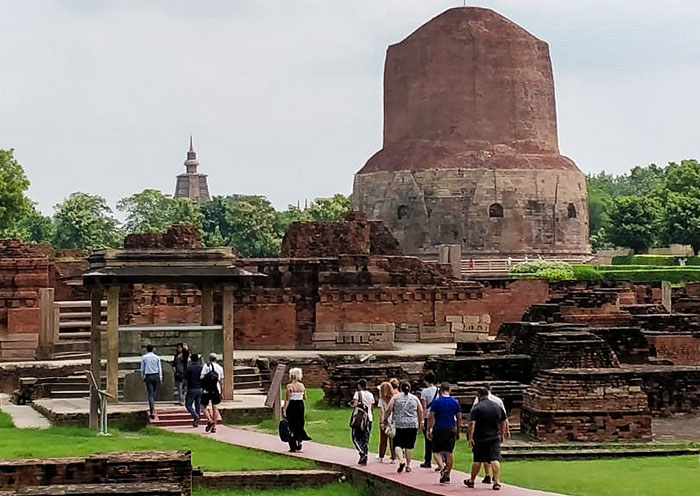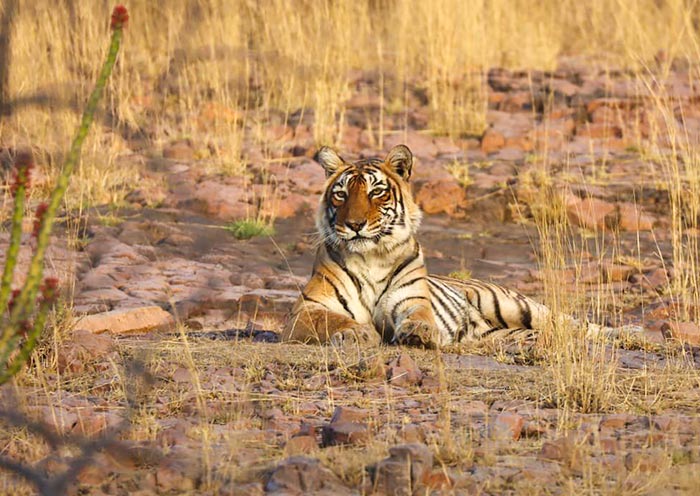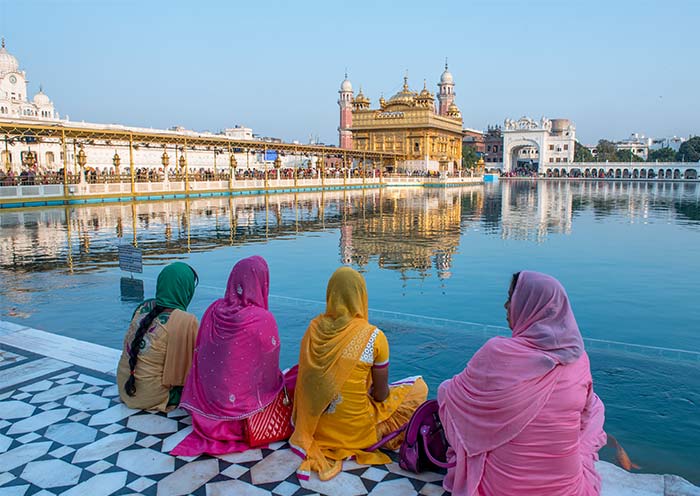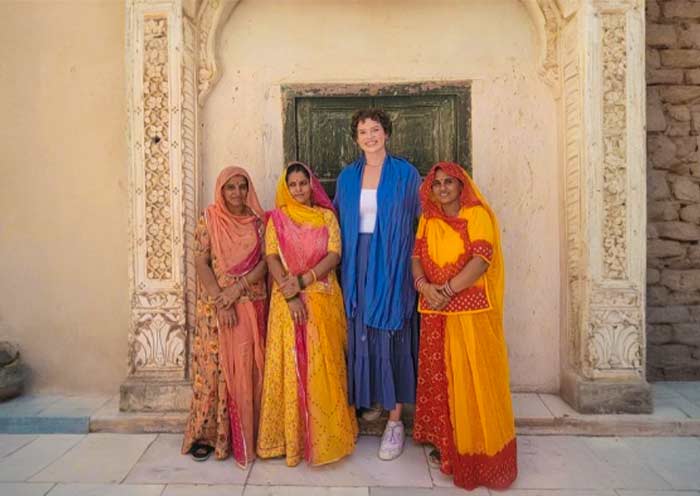Wake up early and savor the beauty of a sunrise on the River Ganges with a Morning Boat Ride. This is a must-do experience in Varanasi, where you can view the Ghats from a boat, especially during sunrise. Varanasi, renowned as the City of Light, embraces the symbolism of light representing knowledge. Embrace the morning light as you witness a multitude of activities around the ****Ganges including locals bathing in the river, worshiping the sun, cremations, religious rituals, bustling commercial activities, occasional rubbish dumping, and clothes washing. This immersive journey will make you feel as if you are traversing through time and space.
Tips for the Morning Boat Ride on the Ganges:
1.The Boat Ride typically starts around 5 AM and lasts approx. 1 hour.
2. It usually coverssignificant Ghats (piers) including Dashashwamedha Ghat, Harishchandra Ghat (burning funeral), and Manikarnika Ghat (a cremation site).
3.If you wish to view Alamgir Mosque (optional), the boat ride will be extended, covering the stretch from Assi Ghat to Panchganga Ghat.
4.Sunrise Timings: Around 5:00 AM during summer & around 5:45 AM during winter.
5. Respect the local culture, as Varanasi is home to the Ganges River, India's sacred river, river of life, religion and pollution.
After getting off the boat, you will have breakfast at your hotel and then spend the rest of the day visiting Sarnath (The Deer Park), Bharat Mata Temple, Shri Kashi Vishwanath Temple (Golden Temple), and Banaras Hindu University (BHU).
After Breakfast, head to Sarnath (Sarnath Deer Park) where Gautama Buddha (Sakyamuni, Buddhist founder) preached his first teachings after enlightenment and revealed the eightfold path (the Buddhist doctrine). Sarnath holds the same level of holiness for Buddhists as Varanasi does for Hindus, as it is one of the four holy places of Buddhism in ancient India. Tibetan, Chinese, and Japanese monks have constructed and maintained several Buddhist temples in Sarnath during the twentieth century. In the seventh century, the Chinese pilgrim Hsuan-tsang (Xuanzang,玄奘) recorded that there was a monastery (in Sarnath) large enough to house 1,500 monks. You can visit Chaukhandi Stupa a fifth-century stone marker that memorializes the spot where the Buddha met his first disciples, and the 39m high Dhamek Stupa (landmark of Sarnath), a hemispherical structure used for meditation. Don't miss a visit to the Sarnath Archaeological Museum (Sarnath Museum, closed on Fridays) for well-preserved Buddhist relics such as the famed Lion Capital of Ashokan sculpture (the National Emblem of India).
Later, you will visit Bharat Mata Temple, the Temple of Goddess Motherland India, which is the only one of its kind in the world. It was built in 1936 CE by freedom fighter Babu Shiv Prasad Gupta and was inaugurated by Mahatma Gandhi. Located in the Mahatma Gandhi Kashi Vidyapeeth Campus, Bharat Mata Temple is counted amongst the most-visited places in Varanasi as it houses no idol but a large map of undivided India carved in marble. The entire temple structure is supported by five distinct pillars, symbolizing the five elements of nature - Earth, Wind, Fire, Sky, and Water.
Next, you will move to the Shri Kashi Vishwanath Temple (Vishwanath Temple, ) which has been located in Vishwanath Gali, Varanasi since 1589. It is situated near Manikarnika Ghat, where over 300 funeral pyres are lit every day, on the western bank of the sacred river Ganga. The Kashi Vishwanath Temple is famed for its tower , which is adorned with 800 kg of gold, earning it the name "Golden Temple" among the people. This temple is one of the most famous Hindu temples dedicated to Lord Shiva and is counted among the twelve Jyotirlinga shrines.
Then, explore Banaras Hindu University (BHU) and visit its internationally reputed temple, known as the New Vishwanath Temple. This Hindu temple is opened to everyone and was constructed t by the Birla family, with its completion in 1966. It proudly features the world's tallest temple spire, becoming a prominent new landmark of Varanasi.
If you wish, you can also enjoy a delightful shopping experience in the evening at the markets of Varanasi.


